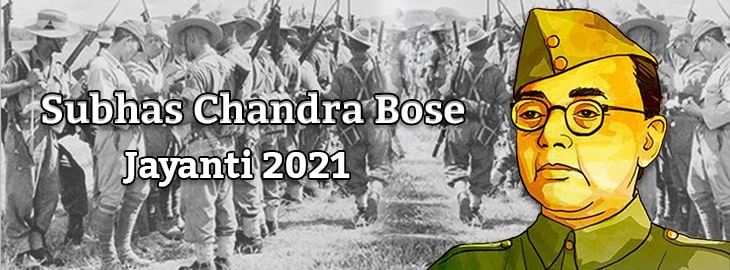Subhash Chandra Bose was born on 23rd January 1897, in Cuttack, Orissa Division, Bengal Province, to Prabhavati Dutt Bose and Jankinath Bose.
Subhash Chandra Bose
Netaji Subhash Chandra Bose (23 January 1897 – 18 August 1945) is one of the most famous freedom fighters of India.
In 1942, he earns the title ‘Netaji’, in Germany by the Indian soldiers of the Azad Hind Fauj.
Bose is accredited with the very famous slogan, “Give me blood, and I shall give you freedom!” as well as “Jai Hind”.
He is also accredited to be the 1st man to call Mahatma Gandhi “Father of the Nation”, in his address from Singapore.
Timeline
In 1919, Bose headed to London to give the Indian Civil Services (ICS) exam and he was chosen. Bose, however, resigned from Civil Services as he supposed he could not side with the British.
In 1921, Bose do work under Chittaranjan Das, a powerful politician in Bengal. He worked as the editor for Das’s newspapers, forward, and later started his own newspaper, “Swaraj”.
In 1923, Bose was elected the President of the All India Youth Congress and also the undersecretary of Bengal State Congress.
During the mid-1930s Bose travelled in Europe. He research and write the first part of his book, The Indian Struggle, which covered the country’s independence movement in the years 1920–1934.
After his comeback, Bose took over as the elected President of Indian National Congress in 1938 (Haripur) and stood for unqualified Swaraj (self-governance) and the use of power against the British which then combat against (Mahatma Gandhi) and his views.
Bose was re-elected in 1939 (Tripuri) but soon submissive from the presidency and formed the All India Forward Bloc, a faction within the Congress which aimed at consolidate the political left.
In 1943, he travelled to Japan and took guidance of the Indian Independence Movement in East Asia. With Japanese aid and impact, he took the management of a trained army of about 40,000 troops in Japanese-occupied Southeast Asia known as the Indian National Army.
The INA was 1st formed under Mohan Singh and Japanese Major Iwaichi Fujiwara and comprises Indian prisoner of war of the British-Indian Army capture by Japan in the Malayan (present-day Malaysia) campaign and at Singapore.
The troops of the INA were under the aegis of a provisional government, the Azad Hind Government, which came to produce its own money (currency), court, postage stamps, and civil code, and was recognized by nine Axis states.
In 1945, the British Indian Army retaliates to the capture of Manipur, and Imphal and Kohima by INA and killed almost half of the Japanese forces and the entire participate INA contingent.
Bose escaped to Manchuria seeking a future in the Soviet Union.
He is said to have died in 1945 when his plane crashed in Taiwan. However, there are still many conspiracy theories regarding his death.



